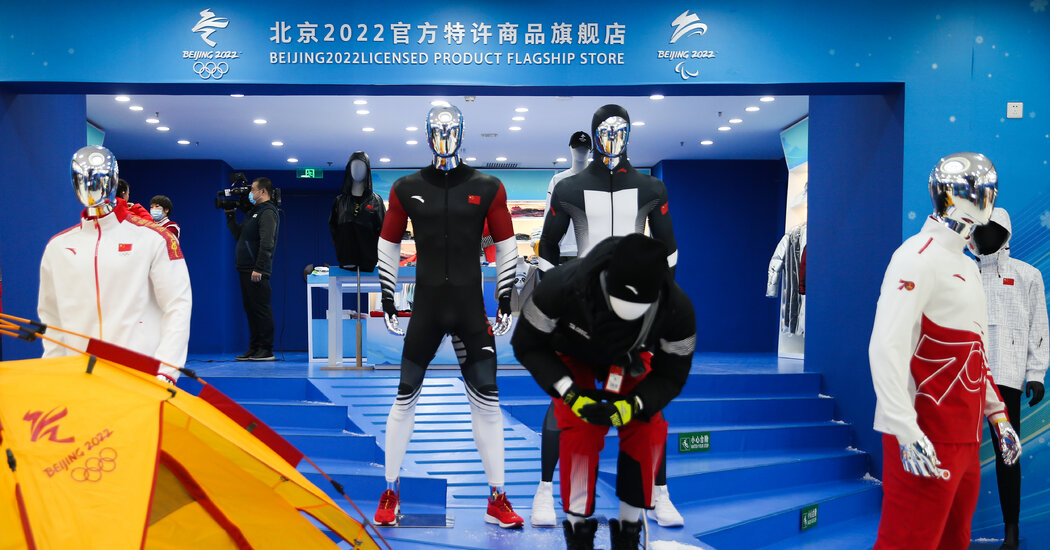
Informal efforts to arrange a conversation between the I.O.C. and the Coalition to End Forced Labor in the Uyghur Region — a group of more than 300 organizations established last year — began in May, according to Mr. Freeman. Finally, in the fall, the I.O.C. invited the coalition to send a formal request to meet, which it did, on Oct. 8.
Officials at first offered a written response instead. In an email on Oct. 29, Ms. Martowicz, the head of human rights, replied to Mr. Freeman to say that the I.O.C.’s sourcing policies banned forced labor. But she did not say how the I.O.C. enforced that ban, other than “from time to time” “engaging with our suppliers” — in other words, the companies themselves — “to request evidence of compliance.”
Third-party checks, she added, were something the I.O.C. “will be looking at” in “coming months.”
Critics say the I.O.C. has been slow to adopt a human rights framework, compared with corporations or even other global sports organizations, such as FIFA. The I.O.C. has adopted new requirements for host cities to uphold international standards on human rights, but those do not take effect until 2024.
Three days after Ms. Martowicz’s email, the coalition asked again for a conversation. Finally, on Dec. 9, Ms. Martowicz said the I.O.C. would meet — with conditions.
The talk would be a one-time event. It would be kept confidential before, during and after, the emails showed. And the I.O.C. would listen only.
“For the sake of clarity, during the Exercise the I.O.C. will not be sharing information (other than what has already been shared) with the Coalition,” Ms. Martowicz wrote.
Zumretay Arkin, program and advocacy manager at the World Uyghur Congress, a Uyghur rights group that is part of the coalition, said she found that condition laughable.




